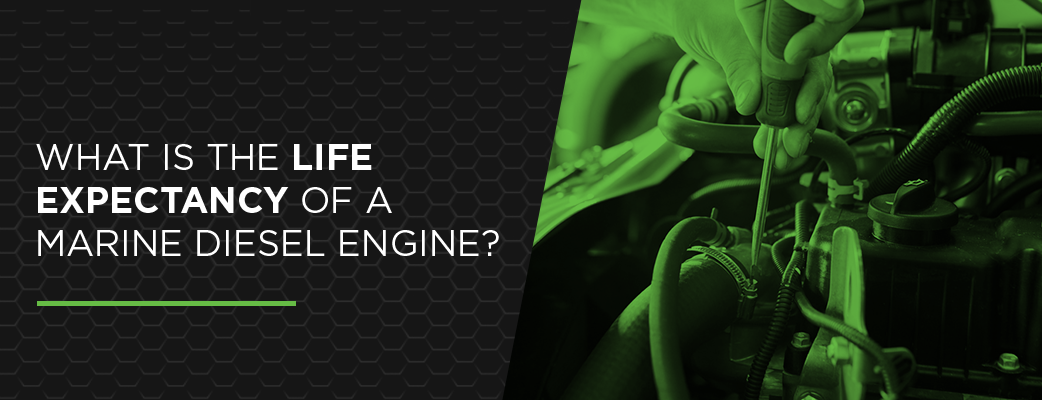
Marine operations can be brutal on engines. Between the inconsistent environments and the constant presence of water, a motor operating in this scenario needs incredible resilience. Fortunately, resilience is one of the defining features of a diesel engine. Even in this challenging environment, the life expectancy of a marine diesel engine is an impressive 5,000 hours on average. With attentive maintenance, that lifespan can reach 8,000 hours.
By comparison, a gasoline-powered marine engine will begin needing attention after a mere 1,000 hours in a marine application, and it will be lucky to reach 1,500. A well-maintained diesel marine engine could potentially last the whole life of your boat. When you need a faithful workhorse you can trust to get you home, a diesel marine engine is easily the best option.
Why Do Diesel Marine Engines Last so Long?
Since they are common to industrial applications, diesel engines are typically larger and more robust than gasoline engines. Additionally, they are constructed with tighter tolerances, meaning every part is built to more precise specifications and displays little variance in quality and dimensions.
Diesel designs have larger crankshafts and cylinder heads, as well as more bearing surfaces for oil, ensuring the entire system is well lubricated. As diesel fuel itself is a light, non-volatile oil with excellent lubricity, the engine essentially keeps itself running smoothly. Diesel fumes also have a higher flash point than gasoline, making diesel engines safer as well as longer-lived.
What Affects Marine Engine Life Expectancy?
Engines operate at their best when given a specific set of environmental factors. For optimal performance, the engine compartment should be full of cool, dry air — about 50 degrees Fahrenheit — at all times, something that can be in short supply on the water.
The water itself is also a key factor. As salt is inherently corrosive, engines used in brackish or saltwater are prone to damage. Without a capable cleaning system, exposure to salt will significantly shorten engine life.
The style of the engine plays a role in its lifespan as well. Inboard engines tend to last longer by virtue of being placed inside the boat and having integral cooling systems. Additional factors affecting engine life include maintenance and inspection schedules, appropriate engine loading and regularity of use.
How Can I Increase My Marine Engine’s Lifespan?
The best way to boost the life expectancy of your engine is to establish a consistent maintenance schedule, starting with routine inspections.
Diesel systems absolutely must have clean fuel. Today’s filters offer clear bowls, making contaminant detection easy. These should be checked regularly, as even the cleanest fuel docks will introduce some water and dirt into your fuel tank. Fresh air is another crucial component of good diesel function. Exhaust from a diesel engine should always be clear, so check the filter any time you see color.
Lastly, check your oil often. Preferably before every start, transfer the oil from the dipstick to your bare fingers to feel for any foreign particles or contaminants. You’ll want to replace the oil every 100 hours, or once a year at a minimum.
Keep Your Engine Alive With Diesel Pro Power
A diesel engine is a significant investment, and with proper care, a long-term one as well. The experienced professionals at Diesel Pro Power have spent years helping customers keep their engines running and their boats on the water. If your diesel engine needs anything from routine care to a total overhaul, one of our friendly customer service experts would be happy to help you. Shop Detroit Diesel and Cummins engine parts with Diesel Pro Power.
For emergency assistance after business hours, please reach out via our website. You can also call us at 888-433-4735 in the U.S. or 305-545-5588 internationally.
Parts Catalog for Detroit Diesel Marine Engine
Parts Catalog for Cummins Marine Engine



 Free US Calls: 1-888-433-4735
Free US Calls: 1-888-433-4735 International: 305-545-5588
International: 305-545-5588